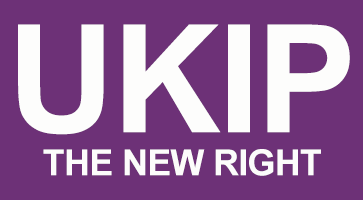UKIP's Personal Tax Allowance Proposals
News & Social Media / Post
Antony Nailer
UK Independence Party Spokesman for Taxation
PERSONAL TAX POLICY 2021 - 2024 (Released in OCT 2023)
Existing Tax Bands
The Personal Tax Allowance is presently £12,570, and there are 3 basic tiers of tax at 20%, 40%, & 45%. The Personal Tax Allowance is removed for earnings over £100,000, adding additional £2,514 to the 40% tax demand. It also means that for earnings over £150,000 there is an additional £2,514 to the 45% tax demand.
Earnings
Tax Rate
£12,571 - £50,270
20%
£50,271 - £100,000
40%
£100,001 - £150,000
40% + £2,514
£150,001 and above
45% + £2,514
It is fundamentally immoral to charge people a higher proportion or percentage of their earnings just because they are high earners. The government knows this and realises people will actively avoid paying the immoral tax requested.
To avoid industrial scale tax avoidance, the tax law includes complex exemptions and allowances that can be utilised to reduce the tax burden. This complicates the tax law which apparently runs to 11,000 A4 pages. (Now a 400-page pack of 80g/m2 A4 paper is 4.3cm high. So, 11,000 sheets would be a stack of paper 1.18m, (46.5”) high.)
The UK Independence Party Policy, since October 2021, is to raise the Personal Tax Allowance to £20,000 and change the complex tier of tax bands into a single flat rate of 27% regardless how much is earned.
This simplification of the tax calculation will still require a number of genuine exclusions, but it is estimated they would take 550 pages of tax law. That will now be a stack 5.9cm (2.3”) high. It is so straightforward, like VAT, that everyone should be able to understand it.
Existing Employed NI Contributions
National Insurance Personal Allowance is presently £9,569 for Employed people and rates from 6 April 2022 are:
£ 9,569 - £50,270 at 13.25% and £50,271 and above at 2%.
The UK Independence Party Policy since October 2021 is to charge £3.85 a week (£200 a year) NI Contribution for employed earnings in the range £5,000 - £20,000 and a single rate of 15% above that income, regardless how much is earned.
Self - Employed NI Contributions
Self-Employed people pay lower National Insurance because they don’t get sick leave payments. The National Insurance Allowance from 6 April 2022 is £6,515 and there are 3 bands:
Earnings
NI Payments
£6,515 - £9,568 class 1
£3.05 a week
£9,569 - £50,270 class 4
10.25%
£50,271 and above
2%
The UK Independence Party Policy, since October 2021, is to charge £3.85 a week (£200 a year) Self-Employed NI Contributions on profits £5,000 - £20,000 and a single rate of 12% above that income, regardless how much you earn.
Summary
The tax and NI tables have been worked out and reveal that the combination of the 27% flat tax together with the £20,000 Personal Allowance and the single NI rates for Employed and Self-Employed people will reduce deductions for earnings of £15,000 by more than £1000, and for earnings of £20,000 by over £2,500 a year.
The tables further reveal that middle income earners will pay less combined tax and NI, except those earning £50,000 who will have to pay £111 a year more. The high earners will be asked for less but with fewer exemptions and allowances, the demand will be more reasonable and less likely to necessitate avoidance. Tax revenue will go up, as it always does when the Treasury reduces the top rate of tax.
Antony Nailer
UK Independence Party Spokesman for Taxation
Recent National News











